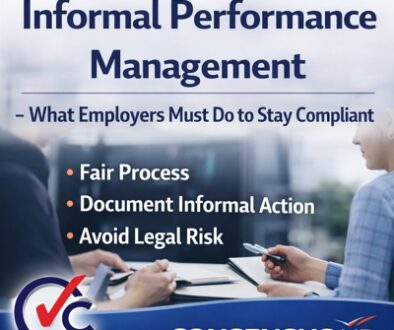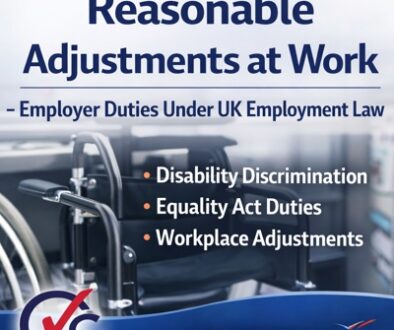Compassionate Leave in the workplace.

One of the many questions we get asked by our clients is in relation to what is the law in relation to ‘bereavement / compassionate leave’ and what should they provide to a member of the team when informed and is the topic of our current blog.
Firstly you should ask yourself what is your company policy (if you have one) and what has been the Precedent in the past when people have told the company of a recent death or the need for compassionate leave?
The next question should be: Does it affect a close relative or dependant? If yes then an employee is entitled as a minimum to take a ‘reasonable’ amount of time off work without notice to deal with emergencies affecting their dependents under the Employment Rights Act.
‘reasonable’ can vary depending on the situation and can be anything from one day to attend a funeral to up to a week to plan an event for close family members.
While this can help an employee to focus on arrangements and the funeral itself, it is often once the funeral has taken place that they require additional support. Shock or the sheer exhaustion of dealing with a protracted illness can have a severe impact. While some people will appreciate the structure and distraction of work, many others suffer from anxiety and depression following bereavement.
With more staff staying in the workplace for much longer than previous generations, this is a situation that managers will encounter increasingly often. The question is: what more can employers do to assist at such a difficult time?
For employees who suffer from mental health illnesses such as depression, it is important to have a line of communication between them and the their line manager. Where possible, an early referral to the business’s occupational health provider is crucial, both as a pathway to accessing other medical assistance and in securing the best chance of the employee successfully returning to work in the future. The objective should be to have a referral and appointment within four weeks of the diagnosis of depression. This is an extremely delicate conversation to have with someone so recently bereaved.
For an employee who wishes to have the distraction of work, there can be issues with performance, which can dip substantially on their return. At this point, managers have a key role to play in discussing the support the employee wishes to have. A return to work discussion about workload levels and weekly catch ups are recommended, and it’s important to keep a watchful eye on the team member. You also need to consider whether the
employee has a mental health condition that would qualify as a disability. If so, there will be a requirement to make reasonable adjustments and not to take action that would discriminate against the person’s disability.
Financial matters can add greatly to the stress and anxiety experienced by a bereaved employee. The loss of a loved one who was the main breadwinner can have a devastating impact on them and their family, especially if there was not time to put financial affairs in order. Only by talking to them will this come to light. Some employers may be able to help with zero-interest loans or by directing the employee to additional sources of support and advice.
Managers and HR professionals are the key to dealing with staff struggling with bereavement. They can provide support and pass on vital information to the employee, including the fact that employee assistance programmes are much more than just telephone helplines. It will be for the manager or HR to tease out whether the employee has financial worries caused by their change in circumstances. However, employers must ask themselves this: have managers and HR professionals been trained to engage in these sensitive discussions with confidence?
Matthew from Consensus HR comments “In these difficult times it is vital that employers have a clear policy that is easy to follow and states what the procedure is for all members of the team so as to ensure in difficult situations that the appropriate action is taken and no further stress put on the individual or the business. Clear guidelines ensures that all members of the team are treated the same and managed accordingly. I always suggest that a clear documentation trail is also kept with payroll as unfortunately from past experience it has been known for a number of grandparents to pass way!”
If you wish to discuss your current policies / procedures in relation to compassionate leave or any other area of your companies HR Policies & Procedures give us a call or fill in the ‘Contact Form’ and we will contact you asap.

YOUR OUTSOURCED HUMAN RESOURCES DEPARTMENT.
For further information on any of the HR subjects we provide, please click the heading below:





